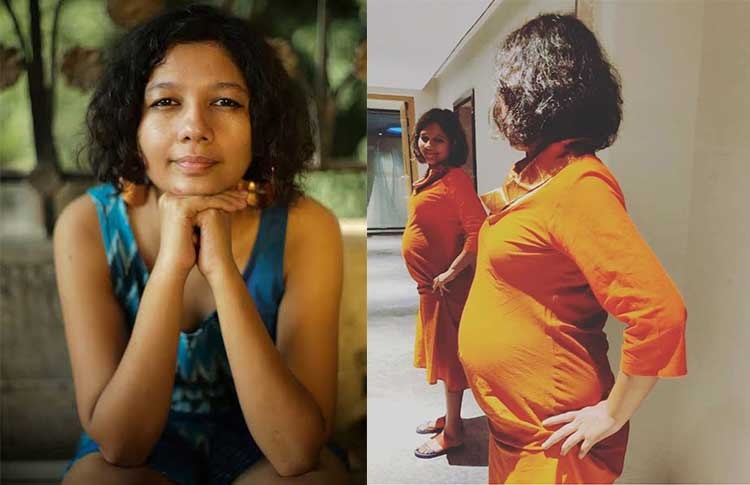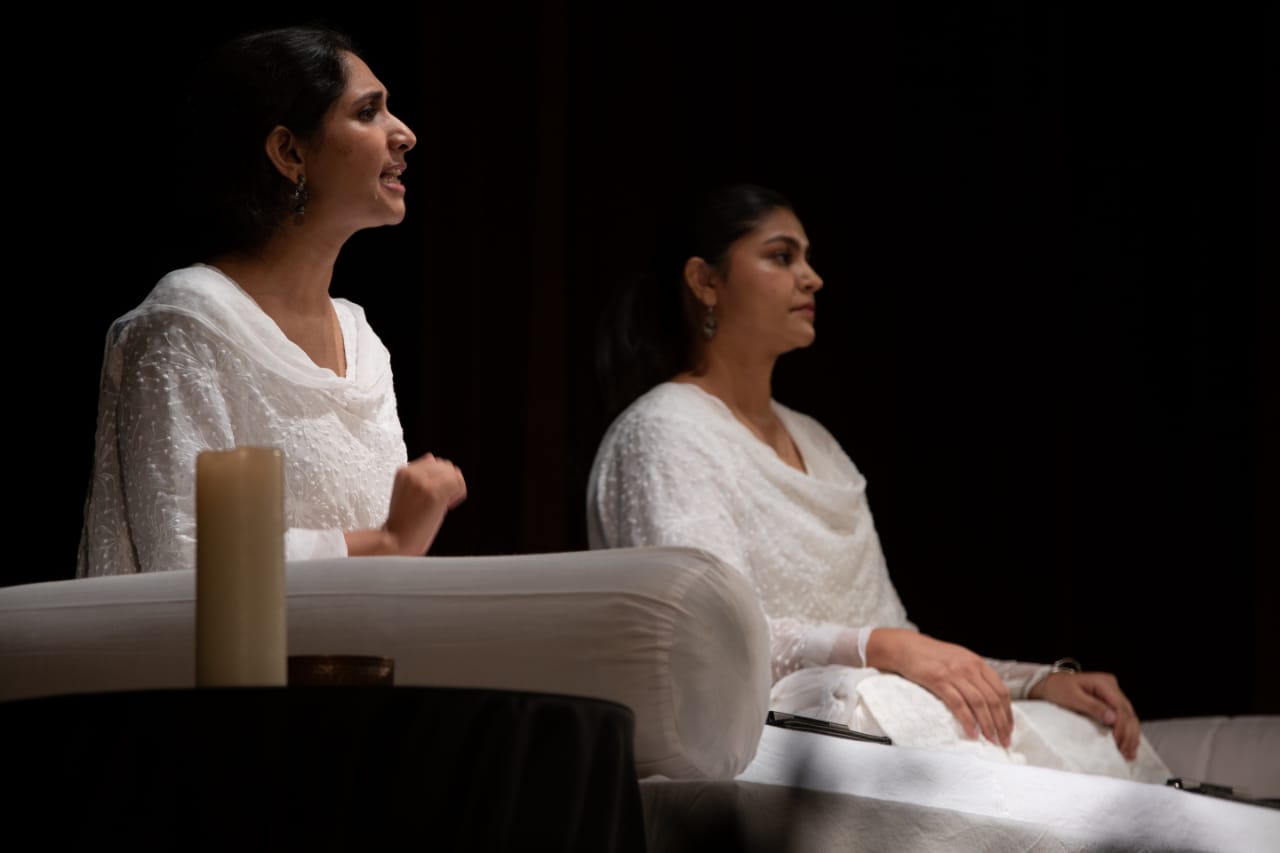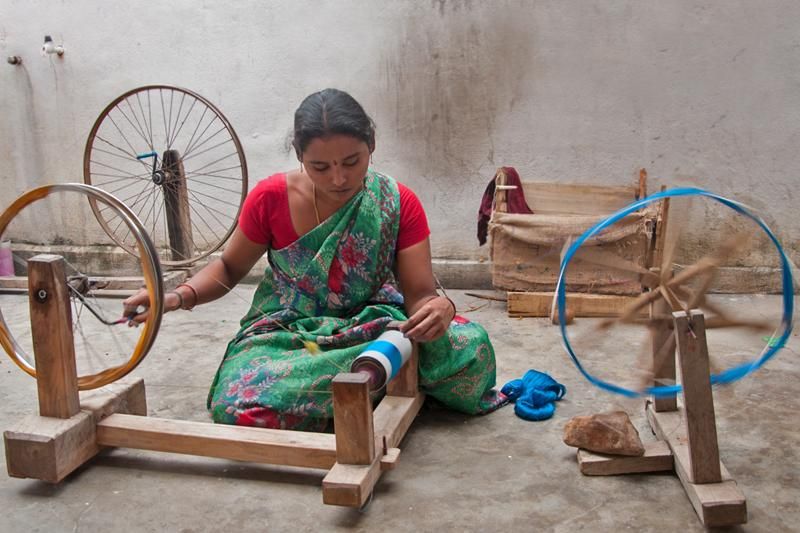Through Her Lens, Filmmaker Priya Goswami Pictures The Story Of Khatna In Bohris
- IWB Post
- January 25, 2017

In the last few days, we spoke to members of Sahiyo who work towards empowering women from the Dawoodi Bohra and other Asian communities to end female genital cutting. Each one of them has a unique story that binds them together towards a common cause.
‘A Pinch of Skin,’ directed by Priya Goswami, an independent filmmaker who lives in Hong Kong, pricked my thick journalist skin with powerful emotions. To know more about the film story and the reason behind Priya’s association with Sahiyo, I caught up with her on her recent visit to India, over a skype chat.
‘A Pinch of Skin’ is the first film to closely examine the practice of female genital cutting in the Dawoodi Bohra community of India. Priya received the prestigious National Award for documentary filmmaking for her work.
Priya is also the recipient of IAWRT Long Documentary grant and has directed several short fictions, ads, and documentaries.
Me: When did you first learn about the practice of Khatna?
Priya Goswami: It has been over six years when I started to do my research on this subject and I decided to ponder more on the practice after I read an article in the outlook magazine. The reason why it rang a bell because in my undergraduate days I wrote a play called ‘Chakravyuh’ which was on the religious subversion of women and how religion uses patriarchy and have subversive rules against women.
So when I read that piece in the magazine I realized that here is one such tradition which uses the alibi of religion to subvert a child’s rights over her body. And that’s where my journey began.
Me: Tell us about your experience of interacting with Bohri women?
Priya Goswami: When I started meeting people, I realized they are just like you and me, having regular hopes and mindset. One thing that I often told them so that they open up in front of me was “I am going to show your story exactly the way you want it.”
So through my film ‘A Pinch of Skin’ I have tried to bring both the voices – people who are pro-practice and those who are against the cut. I feel we all are indoctrinated in our own traditions and this is exactly what I felt amongst the Bohri people also. I never told them I am going to talk them through the practice in fact what I told them was that I am going to respect their opinion.
I felt the reason behind parents initiating this practice is because they themselves are not able to logically reason it out and this leads to contradictions in their narrative. They are just blindly following some hearsay that has been passed down from generations. There are inconsistencies in their thought process. So I didn’t want to fight with them because had I done that I would have been on the losing end since they would have never opened up to my ideas then.
So yes, I don’t think I have addressed resistance in the form of an argument but I have definitely done that through my film ‘Love Matters.’
Me: Did you ever think that it is important for one to have experienced Khatna to talk about it?
Priya Goswami: Actually no! Because my entry point in the subject was through the Pinch of Skin which dated way back the whole endeavor of people speaking out in India. In a way even before the movement started, I was somewhat involved in the practice. Also, as a filmmaker, I am not somebody who can tell stories that I don’t strongly feel about and this is something that personally came too close to me. I started drawing parallels with the Bohris as I would with the religion and traditions that I have known. So, as a filmmaker, this has been my reality for 6 years.
Me: Share with us your most emotional experience while making ‘A Pinch of Skin’?
Priya Goswami: I often took the night bus to travel while I was working on the film. Since ‘A Pinch of Skin’ has been shot in 5 different cities there was a lot of traveling to do. Once I remember going to this city in a spur of the moment when a friend of mine said that he knows someone there who might talk to me and help me. And when I reached there, that person didn’t know a thing about the friend who referred me to their house. That time I realized it was a pure moment of destiny for me and later on that lady become one of the most important characters in my film. She took me to the mosque. She made me meet scholars.
So here was this woman who was connecting me with other people, taking care of me as if I was her family and we had no clue as to how and why we met.
Me: Story of a young girl that moved you?
Priya Goswami: There is a little girl in the film who said, “I don’t find boys attractive and probably it is because of my Khatna.”
She was a modern girl, a fashion designing student who was trapped in these emotions and I felt really bad for her when I heard her saying this. She was absolutely convinced that she is not going to feel that love for the opposite sex ever.
Me: What was the biggest challenge you faced while shooting the documentary?
Priya Goswami: My biggest challenge was to unravel for myself whether it is going to be shot the way it is thought. Later while filming, I was convinced that there is no way that it’s going to be shot like a conventional documentary because people will not comfortably come out and talk. It was a gradual unveiling for me that happened for over a year and a half.
Also, how do you place such a sensitive topic over an audiovisual format was extremely challenging.
Moreover, while I was making the film, I was told by people that there will be fatwa released against me, and being a Hindu girl, I could be in real danger, but I am glad that no such thing ever happened.
Me: What other topics would you want to make a documentary on?
Priya Goswami: I am trying to make a film on the displacement of home after marriage, on how girls are uprooted from their homes and families. So yeah, I would be soon making a film on the concept of home!
Concluding our conversation I asked Priya if there’s anything she’d like to add. She replied, “Terminology is super important, so watch your words. Also, never address the subject or approach people with the viewpoint that it is something cruel, but with more understanding and compassion in your heart.”
- 0
- 0













